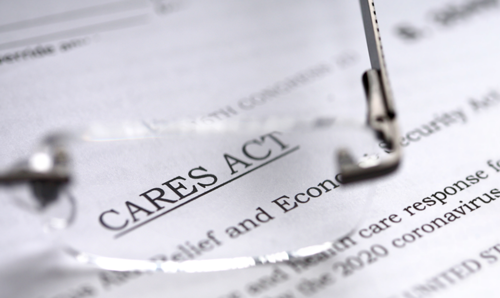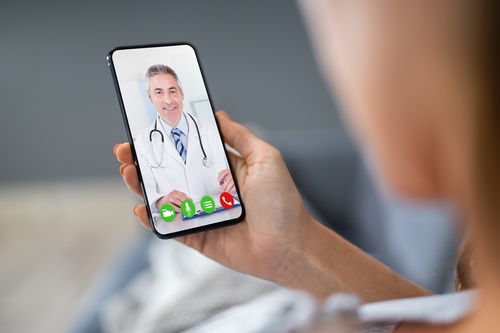On September 29, 2020, California Governor Gavin Newsom signed Assembly Bill 890 into law, launching significant changes to the scope of practice for Nurse Practitioners (“NPs”) over the next few years.
Effective January 1, 2021, NPs who meet certain education and training requirements will be able to perform certain functions without standardized procedures in specified healthcare settings where one or more physicians …
Faced with an ongoing public health emergency that threatens to overload healthcare systems, many states, including California, have developed or revisited their crisis care guidelines to address a potential COVID-19 patient surge. Many of these provide a framework, guided by ethical principles and a commitment to treating patients with equity, for hospitals, county health departments and healthcare providers to plan for the potential allocation of critical care resources (such as ventilators) should they become scarce …
On October 24, 2018, Congress passed the Substance Use-Disorder Prevention that Promotes Opioid Recovery and Treatment for Patients and Communities Act (the “SUPPORT Act”), two sections of which constitute the Eliminating Kickbacks in Recovery Act of 2018 (“EKRA”). EKRA was codified at 18 U.S.C. § 220.
Similar to the Anti-Kickback Statute, EKRA was enacted to address abusive payment arrangements but intended for the context of opioid epidemic treatment and recovery efforts. Specifically, EKRA prohibits the knowing and willful (1) solicitation or receipt of ...
California Governor Gavin Newsom’s March 30th Executive Order authorized the Department of Consumer Affairs to issue waivers of certain laws and regulations pertaining to healthcare licensees. On April 14th, the Department of Consumer Affairs issued Waiver Order 20-04, waiving certain key restrictions on physician assistants’ (“PAs’”) supervision.
The waiver order “only applies if” a PA moves to a hospital or practice setting “to assist with the COVID-19 response”; or, if no supervising physician is available to supervise the PA pursuant to a practice ...
On April 21, 2020, the United States Senate passed the Paycheck Protection Program and Health Care Enhancement Act (the Act). The House is expected to pass the Act and send it to the President on April 23, 2020. Broadly speaking, the Act amends the CARES Act to provide additional funding for the Paycheck Protection Program, hospitals and providers, and includes funding for coronavirus testing.
The Act provides an additional $75 billion on top of the $100 billion appropriated in the CARES Act for the Public Health and Social Services Emergency Fund of the Department of Health and Human ...
On March 28, 2020, the Centers for Medicare & Medicaid Services (“CMS”) announced that the agency would provide relief to Medicare providers and suppliers by expanding the Accelerated and Advance Payment Program for the duration of the COVID-19 public health emergency. According to CMS’ guidance, to qualify for accelerated or advance payments, the provider or supplier must:
- Have billed Medicare for claims within the prior 180 days
- Not be in bankruptcy
- Not be under active medical review or program integrity investigation
- Not have any outstanding delinquent Medicare ...
Well, not exactly. However, in an expansion of regulatory oversight, the Department of Managed Health Care (DMHC) finalized a new rule last year broadening the scope of “person[s]” required to obtain a license under the Knox-Keene Act. The new rule, 28 CCR Section 1300.49, is likely the most significant policy development in California managed care oversight since the enactment of laws governing risk bearing organizations in the late 1990s. Absent legislative or further regulatory action, any entity accepting any amount of global risk in exchange for a prepaid or periodic ...
On March 5th, the Department of Managed Health Care (DMHC) issued its first COVID-19 related All-Plan Letter (APL 20-006) regarding screening and testing. The DMHC directed all full service commercial and Medi-Cal health care service plans to immediately reduce cost-sharing to zero for all medically necessary screening and testing for COVID-19. Of note, the APL directed that health plans “ensure” provider networks are adequate to handle an increase in the need for healthcare services, including offering access to out of network services as COVID-19 cases increase. The ...
Many medical staffs are wondering whether they may conduct remote peer review committee meetings in the interest of supporting social distancing efforts during the COVID-19 pandemic. While it is certainly reasonable to do so, the medical staff must ensure that they have appropriate safeguards in place prior to conducting such meetings. Below we have provided the answer to some questions that may arise when deciding whether to conduct peer review meetings remotely.
Do the governing documents already allow for meetings to be conducted by telephone or video?
Medical staffs should ...
Recognizing the need to empower healthcare providers to reach those most at risk during the COVID-19 pandemic, the Department of Health and Human Services’ Office for Civil Rights recently issued a notification announcing that it will not impose penalties for noncompliance with HIPAA Rules against those healthcare entities who utilize video and voice applications to provide telehealth services.
During this national emergency, covered healthcare providers can use any non-public facing application to communicate with patients, such as Apple FaceTime, Facebook Messenger ...
Our Health Law Ticker is a one-stop resource for everything new and noteworthy in healthcare law. We cover recent developments in healthcare legislation, healthcare reform, Medicare/Medicaid, managed care, litigation, regulatory compliance, HIPAA, privacy, peer review, medical staffs and general business operations for healthcare companies and licensed healthcare professionals.
Stay Connected
 RSS Feed
RSS Feed










